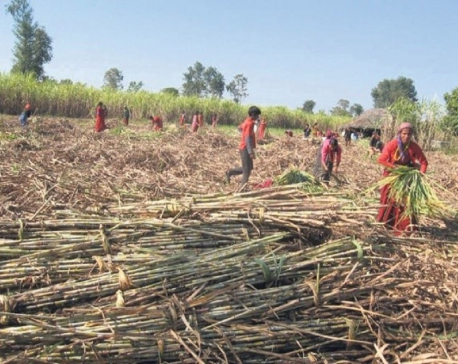
OR
More from Author
Fourteen days for death to rear its head, 14 days for life, 14 days for a breath of fresh air, 14 days to hide.
Since the beginning of the lockdown on March 24, for the next 14 days, the country stopped. The countdown was on. We were supposed to wait. That wasn’t a problem. We may have taken it like curfews which end. There is always something that ends. This time, it is different. We are waiting for this to end but worry that it will extend. When the first 14 days pass after the first case, we can be reasonably sure that nobody has been infected. But we just don’t know if the infection has spread.
Medical professionals and experts are suggesting that the lockdown should be extended by 14 more days after the COVID-19 has infected more than one million people worldwide, its exponential spread and a surge in mortality. I think we don’t need to be very worried. As long as no external contamination occurs, Kathmandu will remain relatively safe. When Ebola killed so many in Africa, we didn’t go into a state of lockdown to prevent deaths in Nepal. The mortality rate due to pneumonia and bronchitis around the capital has remained normal as expected.
But how justifiable is it to lock the economy of the nation just because we are scared of what might happen because it is happening somewhere else? No evidence suggests that the valley itself has more COVID-19. There are labourers who don’t get paid if they don’t work in a day. There are children and elderly who have no income of their own. There are families that require access to income from their members who live abroad but can’t get cash because they have no way to reach the money transfer agencies. There are other people. If you want to keep your family safe, and you think the world will end if we don’t stay inside, go ahead but let us also think of keeping the economy going.
An expert on communicable diseases may not be an expert on economy. Medical professionals save lives in the immediate but may fall short on the long-term effects of such decisions. A doctor must save the life of a patient the economist must save the economy. We federated the country so that local and provincial governments can think of addressing the local problems locally. We have provinces and municipalities precisely for this. Yes, Nepal still faces the risk of infection but that doesn’t justify the economic halt of an entire country, a reasonably healthy nation. Every municipality and provincial authority should take the responsibility of saving their people by enforcing lockdown and quarantine. In the southern plains, due to influx of citizens from across the border there remains a reasonable concern of infection. It should be prevented but this does not justify farmers in Lukla being subjected to lockdown. A more reasonable approach would be to handover the administration to local authorities.
We must look at what is happening to us rather than what is happening to others and take decisions accordingly.
You May Like This

Help the farmers or brace for massive protests
The coronavirus pandemic has exposed our vulnerabilities. During these difficult times, we have been threatened in many ways. One mighty... Read More...

South Asian nations weigh tighter lockdowns as coronavirus cases hit 12,000
NEW DELHI/ISLAMABAD, April 10: India accounts for more than half the tally of those infected with coronavirus across south Asia,... Read More...

CG group extends warranty periods of electronic products and home appliances
KATHMANDU, April 9: Chaudhary Group has extended the warranty period of its electronic products and home appliances. ... Read More...







Just In
- NRB to provide collateral-free loans to foreign employment seekers
- NEB to publish Grade 12 results next week
- Body handover begins; Relatives remain dissatisfied with insurance, compensation amount
- NC defers its plan to join Koshi govt
- NRB to review microfinance loan interest rate
- 134 dead in floods and landslides since onset of monsoon this year
- Mahakali Irrigation Project sees only 22 percent physical progress in 18 years
- Singapore now holds world's most powerful passport; Nepal stays at 98th












Leave A Comment